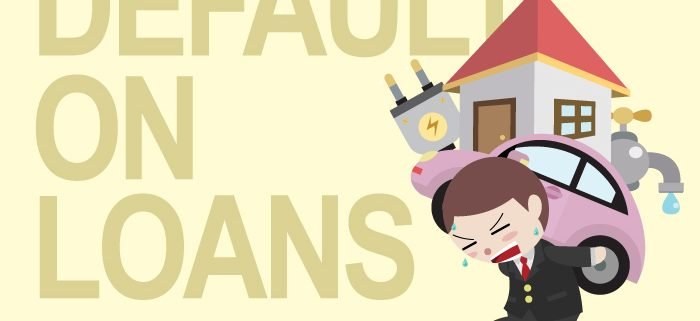An auto title loan or a car title loan is one of the easiest and quickest options to get cash when you urgently need it. Processed in less than an hour with little paperwork, the title loan is often preferred as it doesn’t require a credit check or proof of secure income. It is the ideal solution for those who do not qualify for bank loans and can’t count on relatives and friends when they have to pay a bill as soon as possible.

Getting a car title loan is a straightforward process that can be completed online. All you need as a proof is your ID, a lien-free title of your car (or any other vehicle that you are using as collateral) and a spare set of keys. You get the approval and the cash advance in no more than an hour and you keep driving your car as long as you pay your installments on time.
There is, however, the possibility that for one reason or another you fall behind payments and you default on your auto title loan. So, what are the consequences of that and is it possible to avoid them?
Car repossession and repossession time line
The first unpleasant consequence that you are faced with when defaulting on your title loan is the loss of your car. You can expect forced repossession of your vehicle at a time that you least expect. The lender doesn’t need to notify you before they send someone to take your car unless it is otherwise stipulated in your contract. Therefore, make sure to include the notification if possible. Otherwise, the repossession agent may turn up and seize your car while you are at work, picking up the kids from school or directly from your home at any given time.
You should be aware that according to the Federal Trade Commission the rules governing the car repossession are formulated by each individual state, and thus you can expect different procedures in different states. In some cases, the lender can repossess the car even after one missed payment, while other states require at least several missed payments before this step is implemented. The details on defaulting your title loan will be given in the contract you sign with the lender. You need to read it carefully and ask any questions if you are unsure of something.
Here are a few facts that are valid for car repossession, regardless of your individual contract.
Once the borrower defaults on their car title loan, the lender CAN:
- seize the vehicle at any time
- come onto the borrower’s property to seize the vehicle
- choose not to notify the borrower when the vehicle will be repossessed
There are also several restrictions when it comes to car repossession. The lender CANNOT:
- Make threats against a borrower or their family
- Use physical force against a borrower
- Physically force another property or in other words they cannot open your garage by force to take the car out of there
What happens with the repossessed vehicle?
Once the lender repossesses the vehicle they have to put it to auction and sell it. The money acquired at the auction will be used to cover the borrower’s debt on the title loan. If the vehicle is sold for more money than the amount due, the lender is required to return the differences to the borrower. In addition to that, any personal belongings that were in the car at the time it was seized, should also be returned to the defaulted borrower.
Voluntary Repossession as an option
In some cases, the borrower realizes that repossession is inevitable and therefore they can opt for a voluntary repossession. This means that the borrower goes directly to the lender and agrees to drop off the car. The two parties can agree on a convenient date and place where this can happen. In exchange of the car, the defaulted borrower receives confirmation that all their debt is settled and they won’t be pursued any further. This can save you from some negative penalties and most important the repossession is not recorded in your credit history, while otherwise it stays there for up to fifteen years.
Credit score damage
Defaulting on a car title loan and the subsequent repossession will affect your credit score quite negatively. The default can appear in your credit history for up to fifteen years in some states. The missed payments will also decrease your credit score. A missed payment usually stays in your credit history for about two years.
How to avoid default on your car title loan?
The best way to avoid a default on a car title loan is to plan for your payments in advance. Usually such loans are taken for a shorter period, such as one month with an interest of 25%. So, if you have received $1,000 you will need to return $1,250 at the end of the month. You can also repay only the interest and prolong it for several more months.
Before taking any loan, make sure that your total debt repayment doesn’t exceed 50% of your monthly income. Take into consideration all forms of payments that you need to make – not only on the title loan but on credit cards, rent, etc.
If you are struggling with debt management, in general, you can consult a licensed credit counselor, who will give you tips and can even draw a special debt management plan.
There is also the possibility to approach your lender and renegotiate the terms of your payment plan. At the end of the day, car title loans are meant to help people who need urgent financing in order to get out of trouble and not to worsen their condition. It is an easy and quick way to get cash without much hassle or credit checks. Just be sure to make a solid plan for repaying the loan before you sign the contract.
Need cash fast? Fast Money Loan offers title loans in Long Beach and across California. We offer very fast approval rates and will beat our competitors’ interest.






